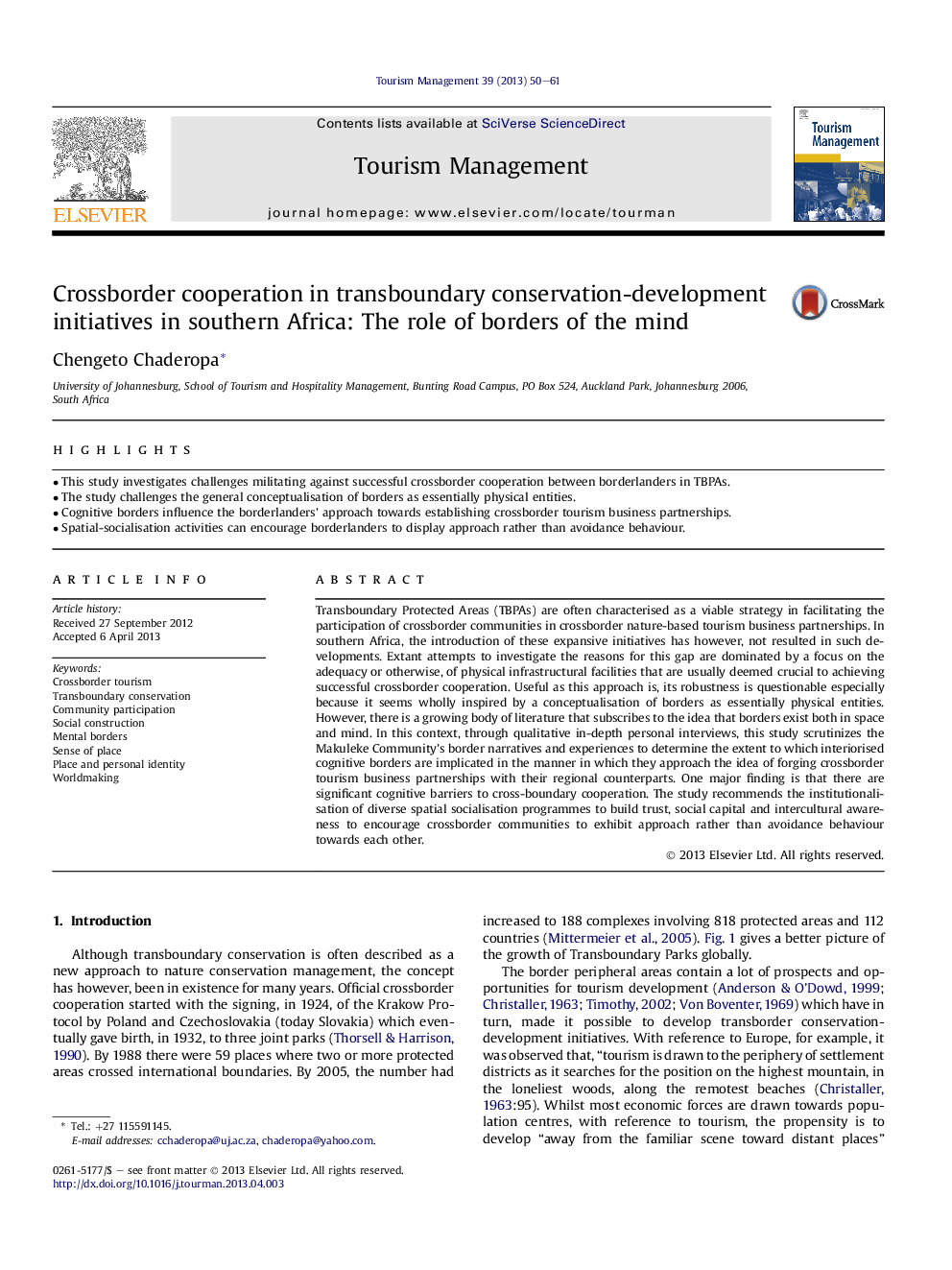| کد مقاله | کد نشریه | سال انتشار | مقاله انگلیسی | نسخه تمام متن |
|---|---|---|---|---|
| 1012140 | 1482644 | 2013 | 12 صفحه PDF | دانلود رایگان |

• This study investigates challenges militating against successful crossborder cooperation between borderlanders in TBPAs.
• The study challenges the general conceptualisation of borders as essentially physical entities.
• Cognitive borders influence the borderlanders' approach towards establishing crossborder tourism business partnerships.
• Spatial-socialisation activities can encourage borderlanders to display approach rather than avoidance behaviour.
Transboundary Protected Areas (TBPAs) are often characterised as a viable strategy in facilitating the participation of crossborder communities in crossborder nature-based tourism business partnerships. In southern Africa, the introduction of these expansive initiatives has however, not resulted in such developments. Extant attempts to investigate the reasons for this gap are dominated by a focus on the adequacy or otherwise, of physical infrastructural facilities that are usually deemed crucial to achieving successful crossborder cooperation. Useful as this approach is, its robustness is questionable especially because it seems wholly inspired by a conceptualisation of borders as essentially physical entities. However, there is a growing body of literature that subscribes to the idea that borders exist both in space and mind. In this context, through qualitative in-depth personal interviews, this study scrutinizes the Makuleke Community's border narratives and experiences to determine the extent to which interiorised cognitive borders are implicated in the manner in which they approach the idea of forging crossborder tourism business partnerships with their regional counterparts. One major finding is that there are significant cognitive barriers to cross-boundary cooperation. The study recommends the institutionalisation of diverse spatial socialisation programmes to build trust, social capital and intercultural awareness to encourage crossborder communities to exhibit approach rather than avoidance behaviour towards each other.
Journal: Tourism Management - Volume 39, December 2013, Pages 50–61